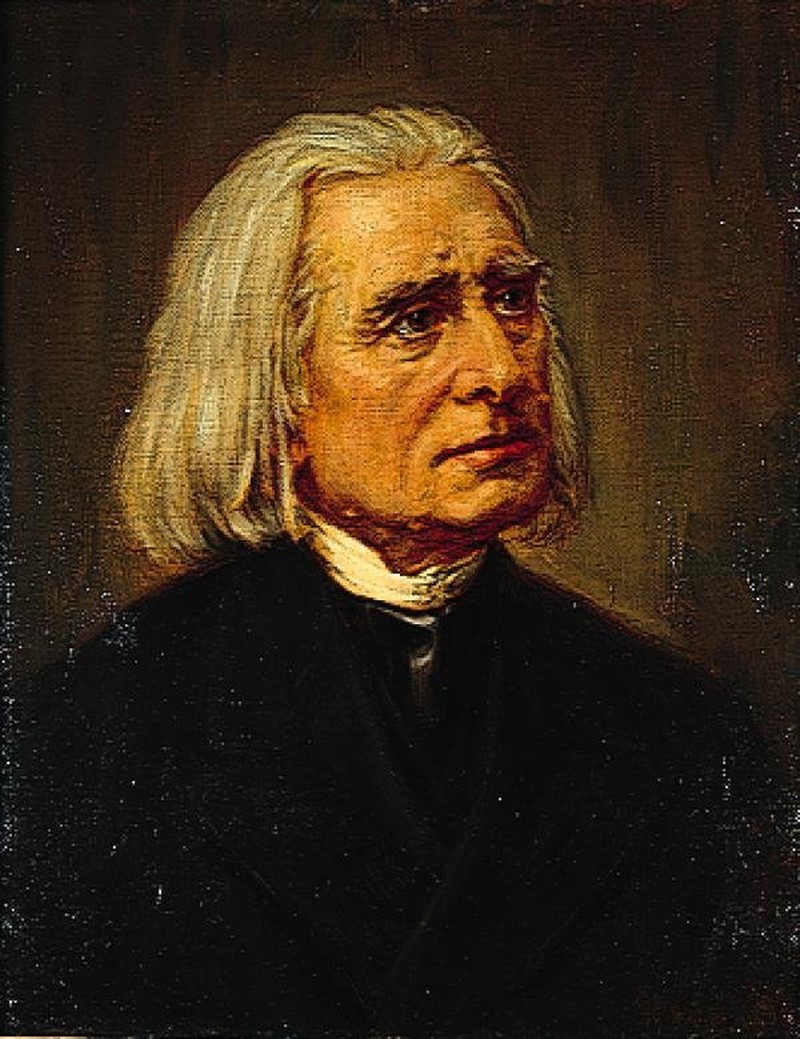

#FRANZ LIZT FULL VERSION#
"And I was fascinated."įor the full version of this story, including Guy Raz's complete interview with Lang Lang, click the audio link at the top of the page.Yet he was more than a mere musical showman. "I was watching Tom and Jerry, and they were playing Liszt's Hungarian Rhapsody No. The pianist said he first heard Liszt's music as a 2-year-old. Weekends on All Things Considered host Guy Raz spoke with Lang Lang earlier in the week, between rehearsals in Philadelphia. Lang Lang's love of Liszt is well-known - in fact, his newest album is called Liszt: My Piano Hero. The orchestra will have a very special guest: Lang Lang, another world-renowned pianist and perhaps the closest thing we have today to a classical rock star. Tonight, on the 200th anniversary of Franz Liszt's birth, the Philadelphia Orchestra is performing his First Symphony. "It seemed that everyone wanted to get something out of him, so when people go ecstatic. "He was exotic, he was different, he was pure in a way," says Mars. Mars says he wanted to write an homage to Liszt the band even recorded the video for the song outside Liszt's home in Bayreuth, Germany. "I love classical piano, so I have to love Liszt," says Thomas Mars, Phoenix's lead singer. (It was a bit over the top, anachronistically adding pyrotechnics and gunplay to Liszt's already-flamboyant stage show.) Then, just a couple years ago, modern rock fans fell in love with the song "Lisztomania" by the French band Phoenix.

In 1975, Ken Russell directed a film called Lisztomania, starring The Who's Roger Daltrey as Franz Liszt. The cultural impact of Lisztomania continues to take various forms today. He died in 1886, but all through the 20th century, his influence could be heard - in the works of fellow Hungarian composers Bela Bartok and Zoltan Kodaly, as well as in the writing of his son-in-law, Richard Wagner. "After Liszt, that was no longer the case a conductor was someone who shaped the music in an intense musical way, who played the orchestra as an instrument."Īnd, of course, Liszt would go on to compose around 1,400 works. "Before Liszt, a conductor was someone who just facilitated the performance, who would keep people together or beat the time, indicate the entries," Hough says. Later on in his life, Liszt became interested in conducting, and he re-defined that role as well: He started to work with individual musicians to help them shape the sounds that he was after. I think he also realized how superficial a lot of audiences' appreciation might be, and he wanted to retire and to do something more meaningful." So, he was never going to be satisfied just with pleasing the countesses. "I mean, he even considered the priesthood in his teens. He was someone who was always searching," Hough says. "He wasn't someone who thought life just consisted of food, drink and all the pleasure you could wring out of it. Even the name "recital" was his invention.īut although his life was the kind many musicians dream of, Liszt walked away from it all in his 30s. Everything we recognize about the modern piano recital - think Keith Jarrett, Glenn Gould, Tori Amos or Elton John - Liszt did first. He was the first performer to stride out from the wings of the concert hall to take his seat at the piano. He'd whip his head around while he played, his long hair flying, beads of sweat shooting into the crowd. Liszt deliberately placed the piano in profile to the audience so they could see his face. Roger Daltrey as Franz List in Ken Russell's 1975 Lisztomania. He was someone who, like a great speaker, was able to capture an audience." "He was someone who seduced people - not just in a sexual way, but in a dramatic way. "Liszt was a very dynamic personality," Hough says. Like many contemporary classical pianists, Hough is obsessed with Liszt - not only because he was really good, but also because he revolutionized the art of performance. "We hear about women throwing their clothes onto the stage and taking his cigar butts and placing them in their cleavages," says Stephen Hough, a world-renowned concert pianist. It was a phenomenon the great German poet Heinrich Heine dubbed "Lisztomania." Women would literally attack him: tear bits of his clothing, fight over broken piano strings and locks of his shoulder-length hair. In the mid-19th century, Liszt was tearing up the polite salons and concert halls of Europe with his virtuoso performances.

But the classical pianist, born 200 years ago today, was in many ways the first rock star of all time. When you think of rock n' roll, Franz Liszt might not be the first name that comes to mind.


 0 kommentar(er)
0 kommentar(er)
